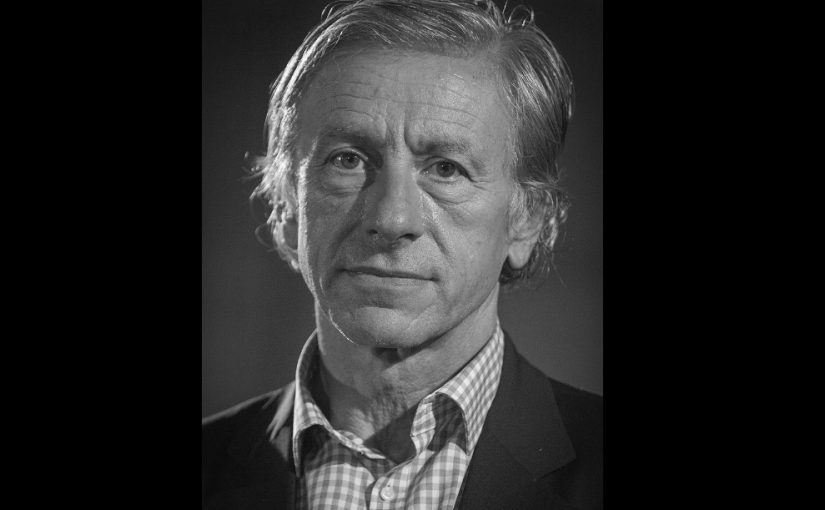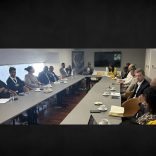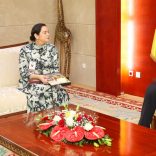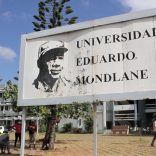Mozambique: RUSI and Embassy of the Kingdom of Norway in Maputo present OCTA project findings
Mozambique: The choice of Rufin is very interesting in several respects – By Joseph Hanlon

FILE - Jean-Christophe Rufin, October 2013. [Photo: Claude Truong-Ngoc/Wikimedia Commons]
- No quick return to Afungi gas project, as Total CEO puts pressure on Nyusi
TotalEnergies Patrick Pouyanne on Friday 3 February visited Palma and Mocimboa da Praia towns and the Afungi gas site and then met President Filipe Nyusi in Pemba. Pouyanne’s message was hard, and he named an eminent French humanitarian and intellectual, Jean-Christophe Rufin, to work with the Mozambicans.
“Since 2021, the situation in Cabo Delgado province has improved significantly, thanks in particular to the support provided by the African countries that committed themselves to restore peace and security,” said Pouyanne. However “The lifting of the force majeure and the resumption of activities at the Mozambique LNG project site require, in particular, the restoration of security in the region, the resumption of public services and the return to normal life for the people of the region. The mission entrusted to Jean-Christophe Rufin should enable Mozambique LNG’s partners to assess whether the current situation allows for a resumption of activities while respecting human rights.” He must report by the end of February.
The choice of Rufin is very interesting in several respects. He is a doctor and was Vice President of Medecins Sans Frontières, President of Action Against Hunger, advisor to the French Minister of Defence in charge of peacekeeping operations from 1993 to 1994, and French Ambassador to Senegal and Gambia. Most importantly, he knows both war and humanitarianism, and could negotiate a resumption of the gas while the war continues, but under strict conditions.
Rufin is also a novelist and one of his novels will give him a special understanding of the Mozambican leadership today. The book is The Dream Maker about Jacques Coeur, the 15th century argentier or royal bursar to Charles VII, charged with providing goods, especially luxury goods, to the royal household. https://h-france.net/fffh/maybe-missed/the-making-of-a-modern-man-jean-christophe-rufins-jacques-coeur/
A review notes that Rufin casts Coeur as “essentially a modern man inserted into the fifteenth century who rejects contemporary value systems for a new understanding of the power of money and commerce to reorder human relations.” He uses his power to gain control of trade and become France’s wealthiest man in a “world of princes and lords, the men who had brought the country to a state of ruin.” Rufin should find Mozambique’s political and economic elite surprisingly similar to his research for this novel.
Rufin has a huge challenge. First he must negotiate to bend the lesser economic powers of Mozambique to the will of the stronger economic power of Total. But from his humanitarian background, he will know he must convince Mozambique’s “princes and lords” to allow more of the wealth and power to trickle down to the poor local residents,.
He may have a long way to go in his month to crack Mozambican beliefs in their own myths, particularly about the possibility of a military victory. The official statement of the Mineral and Energy Ministry (3 Feb) quoted the first part of Pouyanne’s statement, about the Rwandan effectiveness in improving the war situation, but did not quote the rest of the statement setting out the difficult conditions for normality and security. Yet again it gives the false impression that TotalEnergies thinks there is a military solution.
Nevertheless Pouyanne’s and Rufin’s influence may have already been behind President Nyusi’s admission on the same day as the visit.
A first step to negotitions? – Nyusi says insurgency head is Mozambican
The leader of the insurgents is a Mozambican national named Abu Sorraca, also known as Bin Omar, President Filipe Nyusi told diplomats at a reception on Thursday (3 Feb). Abu Sorraca, he said, “is assisted by foreign citizens and we have the names of Tanzanians who are with him”.
In effect, Nyusi is confirming that this is a local war, led by named, identifiable and locally known people. Researchers have been reporting this for some time but Frelimo denied it.
Swahili speaking coastal people in Tanzania and Mozambique have family links going back more than a century. People on the other side of the ignored border are not considered foreigners.
This is a dramatic change in the official line, which previously was that leaders were faceless and nameless, and thus there could be no negotiation because they could not identify people to talk to. There were also attempts to blame some foreign hidden hand – never named but IS was called to mind.
Some in Frelimo have been calling for negotiations, and former President Joaquim Chissano has been involved in back channel discussions and making contacts important for negotiations.
Nyusi’s dramatic change to admitting that this is a local war opens the way for more of these back channel contacts and possible peace talks.
- History matters – Frelimo has always been allergic to too much local power, argues Lourenço do Rosario
President Filipe Nyusi has recently questioned whether there should be elected local government in the districts as required by the constitution. And there are now questions about the decision five years ago to name centrally appointed secretaries of state to keep tabs on locally elected governors and mayors, which is inevitably creating conflicts.
For historic reasons, “Frelimo does not deal well with local power,” argues Lourenço do Rosario, rector of the largest private university, Universidade Politecnica, in a long interview in Savana (3 Feb). “During the armed struggle, when the first liberated zones were created, we also saw the first crises within the movement,” including assassinations and people fleeing the movement. One of the causes of these crises was the governance of the liberated zones. From that time the party has wanted to control local government and it “has always been allergic to too much decentralised local power.”
It was the late Renamo head Afonso Dhlakama who put elected local leaders back on the agenda. As a former traditional local leader, he understood that local power and elected governors would give Renamo power in those provinces where it gained a majority. In negotiations with President Nyusi, Dhlakama forced the acceptance of elected governors and the promise in the constitution of district elections next year. But many in Frelimo continue to resist.
Personal view
The US is spending $2 trillion on a green new deal, doing everything the IMF says is not allowed in Mozambique. This shows the real IMF goal is recolonisation, not development
In the past two years the US Congress has made $2trn (mn mn) available “to reshape the economy. The idea is that, with government action, America can reindustrialise itself, bolster national security, revive left-behind places, cheer up blue-collar workers and dramatically reduce its carbon emissions all at the same time,” writes the Economist (2 Feb 2023)
This violates just about everything in the IMF austerity rulebook that Mozambique must follow. It includes huge government spending directed to support green industry, with a major research component.
This follows two other huge US government interventions to build the country. First the 1930sNew Deal which partly pulled the US out of the Great Depression, with huge infrastructure projects such as roads and electrification, and massive job creation. The 1950s, 1960s and 1970s saw huge subsidies for research and development, for example of the internet. There were huge subsidies for building a middle class. Social Democracy in Europe had a similar success. And it was the age of decolonisation and the start of development, with a stress on local processing of local resources instead of exporting raw materials.
The 1930s and the so-called “golden age of capitalism” from 1950 to 1980 also saw a reduction in inequality with less wealth for the very rich. With the end of the cold war and the end of the fear of communism, the IMF moved to reverse the gains of the golden age. It imposed the policies called by various names – neoliberalism, Washington Consensus, or Shock Therapy. This imposes the free market, free trade, sharp cuts in government involvement in the economy, and wage cuts. The current era has seen a huge transfer of wealth to the super rich and away, particularly, from the middle class.
Mozambique’s graphite mining shows how the new system works. Graphite is essential for the anode of lithium ion batteries and in increasing demand for electric cars and other non-fossil-fuel systems. Anodes are not complicated and could be manufactured in Mozambique, as they might have been 50 years ago when policy supported local processing. This is exactly the sort of green industry Mozambique needs. But now mine owner Syrah has been given a subsidy of $220mn to build the anode factory in Louisiana, one of the poorest US states, to create 221 US jobs with Mozambique graphite. Of course this goes against IMF rules, so Mozambique would not have been allowed to do the same thing.
Again Mozambique is pushed by the IMF and World Bank to return to the colonial era of exporting raw materials and paying low wages – and not doing the things that the US is doing now and did so successfully in the 1930s and 1950-80. Does this feel like recolonisation?
By Joseph Hanlon













Leave a Reply
Be the First to Comment!
You must be logged in to post a comment.
You must be logged in to post a comment.